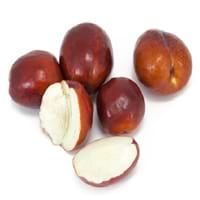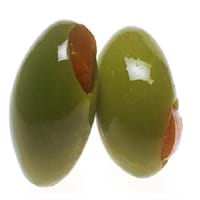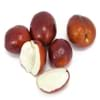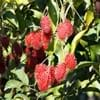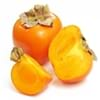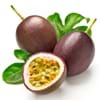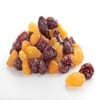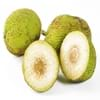Health Benefits
Cancer prevention, Diarrhea treatment, Improves muscular strength, Liver health, Maintains hormonal balance, Reduces nervous tension, Reduces blood circulation problems, Reduces stress, Regulation of heart rate, Treatment of hysteria
Cancer prevention, Helps in cartilage regeneration, Prevents macular degeneration, Treatment of alzheimer's disease
General Benefits
Anti oxidant properties, Digestive aid, Flu treatment, Helps in weight loss, Strengthens bones, Treatment of common cold
Anti oxidant properties, Anti-inflammatory properties, Boosts immune system, Controls blood pressure, Digestive aid, Maintains healthy cholesterol level
Skin Benefits
Heals sunburn, Hydrates skin, Reduces wrinkles, Skin rejuvenation, Skin revitalization
Hydrates skin, Skin rejuvenation, Treatment of skin diseases
Hair Benefits
Promotes longer and healthier hair, Protects hair
Acts as moisturizer, Good conditioner, Regulates hair growth
Allergy Symptoms
Abdominal pains, Breathing difficulty, Diarrhea, Hives, Itching in eyes, Itching of nose, Nasal congestion, Redness of eyes, Runny nose, Sneezing, Wheezing
NA
Side Effects
Decrease in blood sugar levels, Intense headache
Affects blood glucose levels, Dizziness, Stomach pain
Lactating Women
Not Available
Yes
Best Time to Eat
As a snack in the late afternoon, Don't consume at night and before bed, Morning time (before lunch), Strictly avoid empty stomach
Hardly eaten raw, Olive oil is consumed for many purposes.
Vitamin B5 (Pantothenic Acid)
Not Available
Vitamin B9 (Folic acid)
Not Available
Vitamin C (Ascorbic Acid)
Vitamin E (Tocopherole)
Not Available
Vitamin K (Phyllochinone)
Not Available
Lutein+Zeaxanthin
Not Available
Calories in Fresh Fruit with Peel
Calories in Fresh Fruit without Peel
Not Available
Not Available
Calories in Frozen Form
Not Available
Not Available
Calories in Canned Form
Not Available
Calories in Juice
Not Available
Calories in Jam
Not Available
Calories in Pie
Not Available
Type
Tree fruit
Tree fruit
Season
Autumn, Summer
Spring, Summer
Varieties
Honey Jar, Sugar Cane, Li, Shanxi Li, Sherwood, Chico, Silverhill, Tigertooth, Winter Delight and Lang
Manzanillo, Sevillano, Mission, Ascolano, Barouni, Gordal, Rubra and Picholine
Color
Green, Red, Yellow
Black, Green, Purple, Yellow
Origin
Syria
Eastern Mediterranean Region
Soil Type
Sandy, Well-drained
Well-drained
Climatic Conditions
Warm to hot climate
Warm to hot climate
Facts about
- Pigment extracted from Indian jujube is used for silk dyeing in Burma.
- In Korea, jujube wood is used to make wind instrument taepyeongso.
- Fresh jujube is known as Chinese apple & dried form is called as Chinese date.
- In ancient Greece, 1st eye shadow was made by adding olive oil in ground charcoal.
- The most expensive form of olive oil is Extra Virgin.
- Largest type of olive tree is known as donkey tree & smallest one is called bullet.
Other Countries
Bangladesh, India, Iran, Korea, Lebanon, Pakistan
Algeria, Egypt, Greece, Italy, Morocco, Portugal, Syria, Tunisia, Turkey
Top Importer
United States of America
United States of America
Botanical Name
Ziziphus zizyphus
Olea europaea
Synonym
Ziziphus jujuba or Ziziphus mauritania or Zizyphus jujuba
Not Available
Subkingdom
Tracheobionta
Tracheobionta
Division
Magnoliophyta
Magnoliophyta
Class
Magnoliopsida
Magnoliopsida
Family
Rhamnaceae
Oleaceae
Species
Z. zizyphus
O. europaea
Generic Group
Not Available
Olive
Compare Jujube and Olive
It is important compare Jujube and Olive as both the fruits have a different nutritional value. Their comparison can be done on the basis of their vitamin and mineral content, calories, benefits as well as characteristics, making it easier for us to choose the best fruit for our diet. Their general health benefits are as follows:
Jujube Benefits: anti oxidant properties, digestive aid, flu treatment, helps in weight loss, strengthens bones and treatment of common cold.
Olive Benefits: anti oxidant properties, anti-inflammatory properties, boosts immune system, controls blood pressure, digestive aid and maintains healthy cholesterol level.
Fruits are also used as a remedy for various hair problems. The hair benefits of Jujube are: promotes longer and healthier hair and protects hair and hair benefits of Olive are: acts as moisturizer, good conditioner and regulates hair growth. Some fruits are known to cause allergic reactions. The allergy symptoms of first fruit are: abdominal pains, breathing difficulty, diarrhea, hives, itching in eyes, itching of nose, nasal congestion, redness of eyes, runny nose, sneezing and wheezing and the symptoms of second fruit are: na. Get sorted Jujube vs Olive comparison with the help of fruit comparison tool by fruitvs.com.
